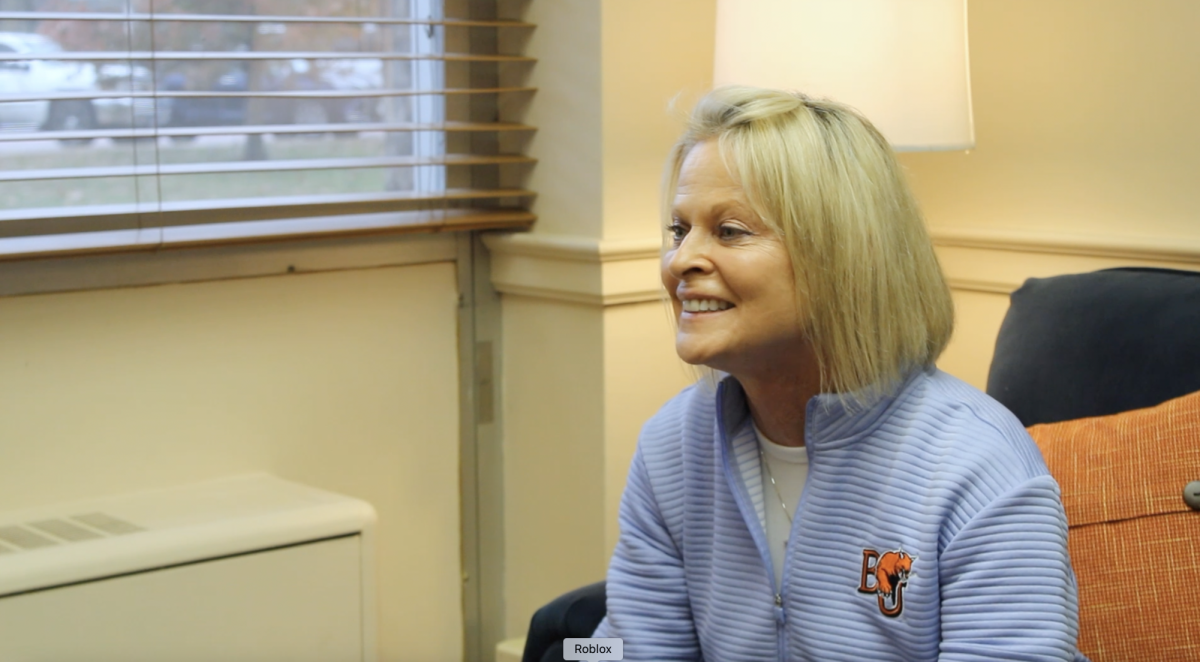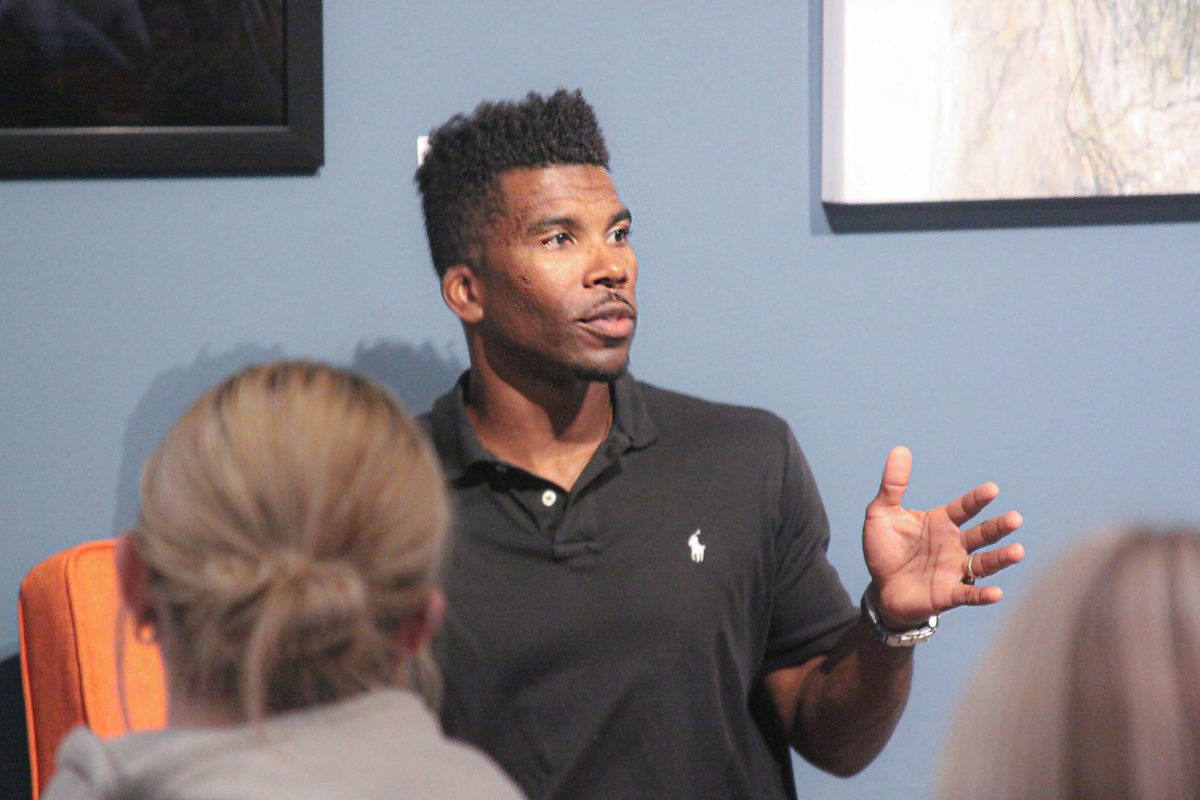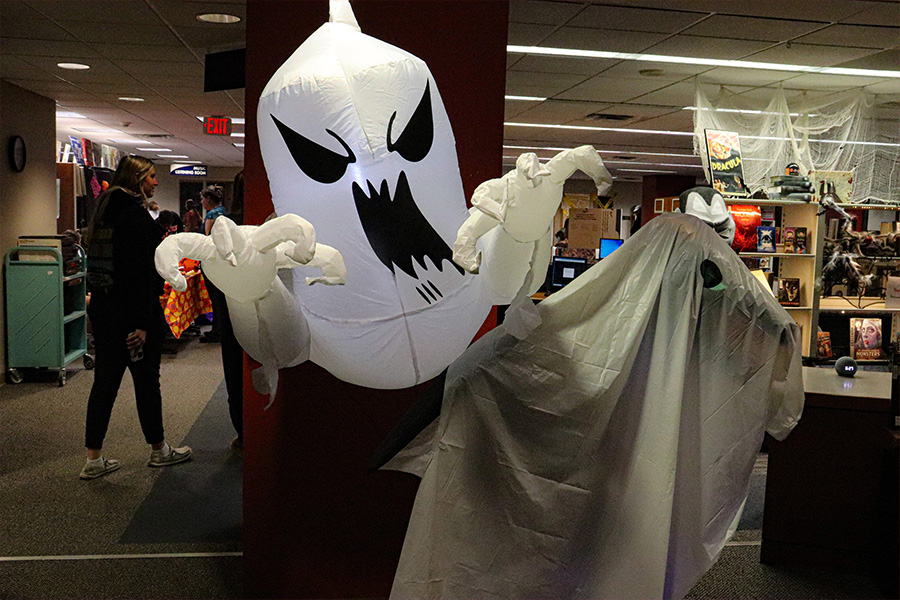It’s common to hear students around a college campus complaining about a lack of money, but almost half the world, over 3 billion people, live on less than $2.50 a day. Students and faculty were invited to attend the Community Action Poverty Simulation (CAPS) Tuesday to get a first-hand experience of that poverty.
Twenty attendees filed into Collins Center to learn about the day-to-day realities of life with a shortage of money and an abundance of stress.
“The simulation will open your mind to truly understand the dynamics of working poverty,” CAPS Director Marion Nichols said. “CAPS is a copyrighted tool that will help promote a greater understanding of poverty. “
CAPS was brought to Baker University’s social inequality class taught by Jacob Bucher, assistant professor of sociology.
Bucher asked for volunteers to set up the event and sophomore Timothy Laughlin and freshman Ryan Mcie took it upon themselves to put the simulation together as an outside learning activity for their class. The event was co-sponsored by Mungano.
“I’m pretty involved on campus, so I had to schedule my planner pretty extensively,” Laughlin said. “But this is a bigger issue than people think.”
During the simulation participants were split into groups and handed a family packet. The packet detailed a family scenario and provided accessories, including play money, appliance cards and transportation passes. A family scenario could be anything from a family of five living on welfare checks to senior citizens relying solely on Social Security.
They then had the task of providing food, shelter and other basic necessities with their resources, while interacting with community resources staged by volunteers.
The simulation was followed by a discussion on how to apply these lessons when working on Family Partnership Agreements. This was a time for students to share their reactions to the simulation and how it made them feel.
“The most interesting part was the discussion,” senior Erica Vest said. “We learned that some of the acts the authority made were not legal, so we learned more about our rights. Also, all I could think was that I’m going to have to start making these financial decisions on my own when I graduate in May.”
The event also provided statistics about poverty around the world in order to raise students’ awareness that families are struggling, whether it is a single mother and her two kids, or a family of eight.
“The main thing is that poverty happens everywhere,” Laughlin said “This experience helped people understand the negatives while giving them a first-hand experience on how hard it is to maintain a family and how poverty can happen to anyone in today’s economic crisis.”








